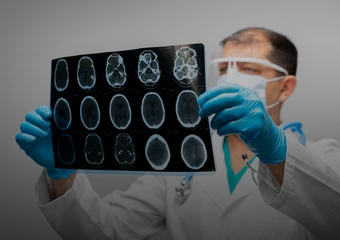Georgia Brain Injury Lawyer

Each year, more than 2 million head injuries send adults and children to emergency rooms. A blow to the head that affects the brain is always a serious matter, and it is critical to seek prompt medical attention right away.
Unfortunately, an injury to the brain could have lasting consequences for the victim. In some cases, the injury can cause physical and financial hardships in both the short term and long term. If you or someone close to you suffered a traumatic brain injury (TBI) that was the result of someone else’s negligence, you may have the right to seek compensation for the harm you’ve suffered and losses you’ve incurred. .
To hold the at-fault party accountable for your injury, it is crucial to hire an experienced injury attorney to handle your claim. The science behind brain injuries is very complex. Be sure to select an attorney who has successfully handled these specific types of cases in the past. With the right legal team behind you, you can feel confident that justice will be served.
If you or a loved one suffered a TBI in a motor vehicle accident, slip-and-fall, medical malpractice incident, or by any other negligent act in Georgia, turn to the trusted team at Spaulding Law Office for help.
Contact us to schedule a free consultation to discuss your situation with us right away. We will provide honest, straightforward legal advice and look forward to helping you.
Common Causes of Brain Injuries
Traumatic brain injuries occur when a sudden trauma, such as a blow to the head or if the skull is punctured and the brain is damaged.
Common causes of TBI include:
- Car accidents
- Truck and 18-wheeler accidents
- Motorcycle accidents
- Bicycle accidents
- Pedestrian accidents
- Slip, trip, and fall accidents
- Falling objects
- Intentional violence
- Medical malpractice
- Birth injuries
- Workplace injuries
- Sports and recreation injuries
This is by no means a comprehensive list. In reality, the brain can be damaged easily when the head is struck, jostled, or if the skull is pierced. If you’ve suffered a TBI in an accident that was not your fault, contact an experienced injury attorney right away to discuss your legal options.
Types of Brain Injuries
Most brain injuries will fall into one of two groups: open or closed head injuries. A closed head injury is one that occurs within the skull. An open or puncture injury occurs when the skull is damaged or penetrated.
The primary types of brain damage that could occur include:
- Coup-Contrecoup – These injuries occur when the brain is damaged on both sides. This type of injury often happens in motor vehicle accidents, when the head is thrown to one side, damaging the brain on the site of initial impact. The brain the moves in the opposite direction, striking the opposite side of the skull and damaging that site as well.
- Diffuse Axonal Injury – This is nerve damage caused by the tearing or shearing of the white matter that connects nerve fibers within the brain.
- Skull fractures – The brain can be damaged if the skull is fractured or penetrated by a foreign object.
- Lacerations – These occur when the brain tissue or blood vessels in the brain are torn. This usually occurs when the brain is forcefully rotated across the bony ridges in the skull.
- Contusion/bruising – Swelling and discoloration can occur at the impact point or where the force of the impact has driven the brain against the ridges of the skull.
- Blood clot/Hematoma – Occurs when there is swelling or a mass of blood inside the brain or between the skull and the brain.
Compensation for Traumatic Brain Injuries
A TBI can be debilitating, and in many cases, may prove to be fatal. If you were hurt, or if you lost a loved one due to someone else’s negligence, you have the right to seek answers and compensation.
Victims could be eligible to recover money to account for:
- Current and future costs for medical treatment such as surgery, hospital bills, rehabilitation therapy, medicine, and mobility equipment
- Current lost wages and future earnings
- Long-term care such as home or residential care
- Pain and suffering, such as chronic pain that often develops with TBIs
- Diminished quality of life
When someone dies due to a TBI that resulted from someone else’s negligence, eligible family members could seek compensation through a wrongful death claim. Filing a wrongful death claim can help the family recover money for funeral and burial costs, final medical bills, loss of financial support, and other losses. It can also help provide some compensation for grief and loss of companionship and guidance.
Symptoms of Traumatic Brain Injuries
Medical professionals will classify a traumatic brain injury as “mild,” “moderate” or “severe.” These classifications describe how the brain functions after a trauma. However, any injury to the brain is still serious and requires immediate medical attention.
Mild Traumatic Brain Injuries
Mild traumatic brain injury symptoms are physical, cognitive, and emotional. Some symptoms of mild traumatic brain injuries include:
- Loss of consciousness, even for a few seconds or a few minutes
- Being dazed, disoriented, or confused
- Fatigue or drowsiness
- Difficulty with sleeping or excessive sleeping
- Loss of balance and/or dizziness
- Headaches, nausea, and vomiting
- Sensory problems such as ringing in the ears, an off-sense of taste, and changes in sense of smell
- Sensitivity to light and sound
- Mental or cognitive problems such as loss of memory and concentration
- Mood swings, feelings of depression, and anxiety.
Even though a brain injury might be classified as “mild,” it is still crucial to seek medical treatment right away. The symptoms of some mild TBIs like concussions can worsen or continue to develop symptoms over time, so be sure to get a diagnosis and treatment as soon as possible.
Moderate to Severe Traumatic Brain Injuries
People with moderate to severe traumatic brain injuries may show symptoms of mild brain injury. They also may show more severe symptoms.
Symptoms of moderate to severe traumatic brain injuries are:
- Loss of consciousness
- Inability to awaken from sleep
- Coma
- Severe headaches
- Vomiting and nausea
- Convulsions and seizures
- Unequally dilated eyes
- Clear fluids draining from the nose or ears
- Loss of balance and coordination
- Weakness in the limbs, fingers, and toes.
- Cognitive symptoms such as confusion and agitation
- Slurred speech
No two TBI injuries are exactly alike. The brain is a complex organ, and the symptoms the individual will experience will depend largely on which area of the brain is affected, how severely, and other factors.
At the Hospital
Doctors start surgery after a trauma patient arrives. Surgery may involve:
- Removing blood clots that can put pressure on the brain
- Repair of skull fractures including cleaning out skull and other debris from the brain
- Relief of pressure from excess fluid in the skull with adding shunts or drains
Medication
Traumatic brain injury victims often need medication for treatment.
Some medications prescribed for victims are:
- Anti-anxiety medicine to help ease anxiety
- Anticoagulants to prevent blood clots
- Anticonvulsants to prevent seizures and convulsions
- Antidepressants to stop depression
- Muscle relaxants to decrease muscle spasms
- Stimulants for alertness
Traumatic Brain Injury Symptoms in Children
Because they lack the ability to communicate their symptoms, it can be challenging to identify traumatic brain injuries in babies, infants, and young children. In addition to more easily observed physical symptoms, signs of a TBI might include:
- Irritability and restlessness
- Crying that does not end
- Change in sleep patterns
- Changes in eating patterns such as not eating or nursing
- Distracted behavior where children cannot concentrate on their playing
- Seizures and convulsions
If you suspect that your child has suffered a traumatic brain injury, don’t hesitate to seek medical attention right away.
How a Brain Injury Could Change Your Life
For some victims of brain injuries, the prognosis could be favorable. Unfortunately, for many others, the injury could have a lasting or permanent impact on their life. Some TBIs may take longer than others to heal. In the worst-case scenarios, the victim may never get better, even with the passage of time.
A traumatic brain injury can result in:
- Short-term and long-term memory loss
- Loss of motor skills, including the ability to bathe and dress
- Sudden mood swings, anxiety, and depression
- Personality changes
- Chronic physical pain such as headaches and migraines
- Nerve injuries leading to loss of use of legs and arms
- Digestive problems such as incontinence
- Partial or total loss of vision
- Hearing issues

When Can You File a Personal Injury Claim after a Traumatic Brain Injury?
If you’ve been hurt due to someone else’s actions or inaction, time is limited to file an injury claim. Under Georgia law, you have up to two years to file a personal injury or malpractice claim. If you attempt to file an injury claim after this time limit has expired, the court will refuse to hear your case, unless a very narrow exception applies.
Building a strong injury claim takes time. The sooner you act, the better.
Your legal team will want to investigate your accident, identify the liable party or parties, and secure evidence to bolster your claim. Over time, vital evidence could be lost, destroyed, or altered, and eyewitnesses’ memories may fade. If you act quickly, your lawyer will have a better chance of collecting all of the evidence necessary to get you the maximum compensation possible.
Long-term Effects of Traumatic Brain Injuries in Children
Children who have traumatic brain injuries can experience long-term complications.
The complications may include:
- Partial or total blindness
- Cognitive disabilities
- Developmental delays such as behavior issues or learning problems
- Cerebral palsy
- Seizures
- Treatment for Traumatic Brain Injury
- Mild Traumatic Brain Injuries
Treatments for traumatic brain injuries are based on trauma severity.
Treatments for mild traumatic brain injuries are rest and over-the-counter pain medicine for headaches. There should be close monitoring for more serious or new symptoms. A person who has suffered from even mild traumatic brain injury should have a follow-up appointment with a doctor.
Contact a Georgia Brain Injury Attorney for Help
The experienced trial lawyers of Spaulding Injury Law are committed to providing legal representation to people who’ve suffered traumatic brain injuries in Georgia. We are committed to seeking justice and fair compensation for you. Our goal is to help you pursue the compensation you need to secure the best medical treatment available and to be able to live your life with the dignity you deserve.
Our consultations are 100% free, so contact us by calling us, by filling out a contact form, or by chatting with us live on our site.



















